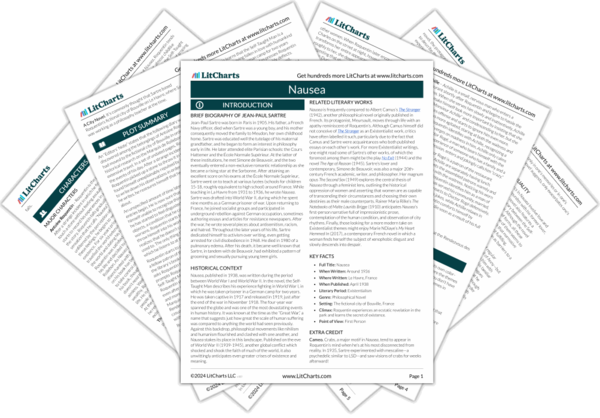Here, Roquentin finally gives a name to the strange feeling that’s been plaguing him: Nausea. His passivity comes through even in how he thinks about this sensation—it's something that touches him while he’s helpless to avoid it. Beyond that, it becomes clear in this section how unreliable and subjective Roquentin’s narration is. He admits to lying and omitting in his journal entries, which calls the “truth” of all of
Nausea into question. Moreover, though, it highlights the individuality and subjectivity of all human experience, which is one aspect of the Nausea that Roquentin must come to terms with.
